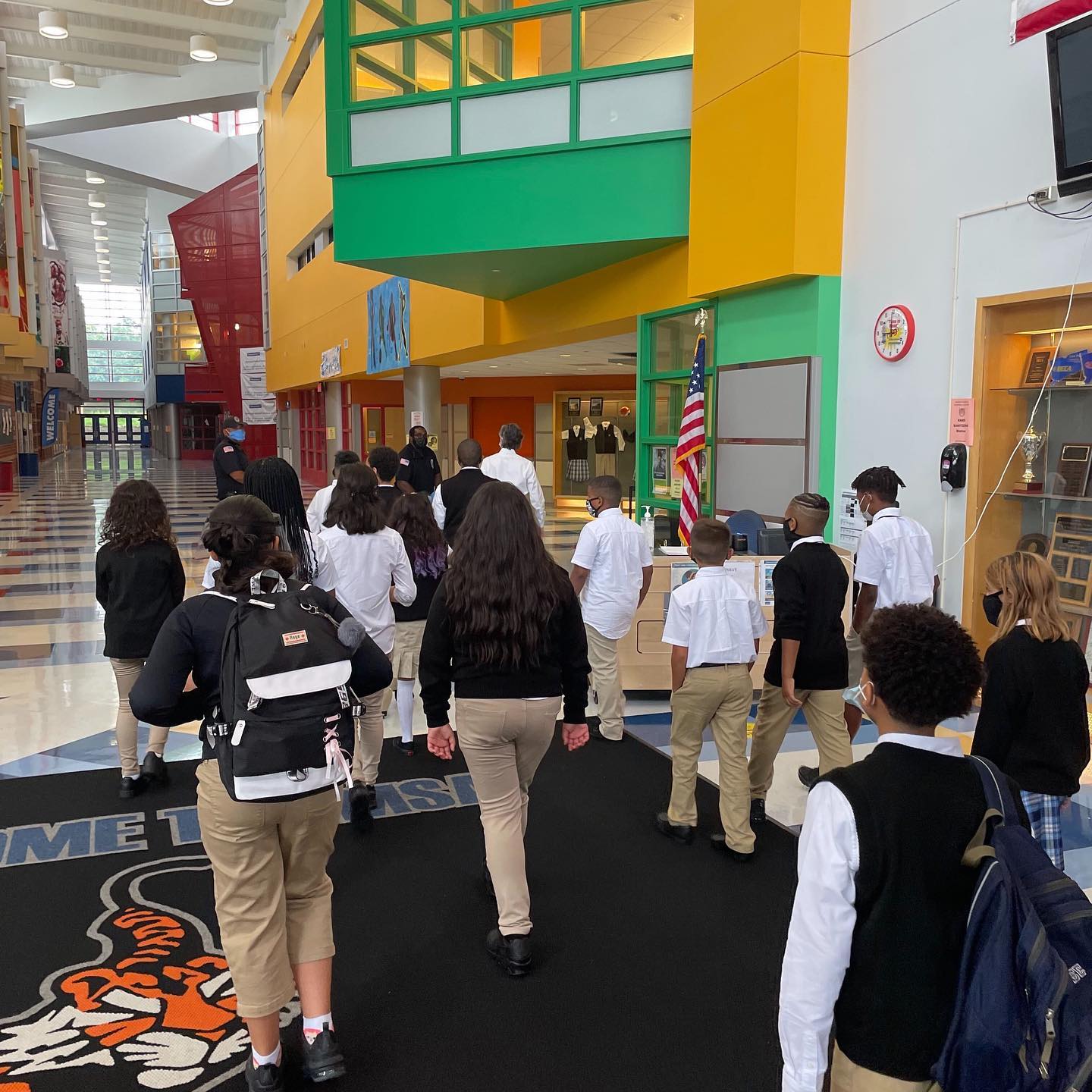Gov. Ned Lamont and Department of Public Health Commissioner Manisha Juthani announced that Connecticut is changing policy regarding COVID protections in schools during a press conference at Newington High School
Starting today, schools will have the option of using a “screen and stay” policy in which students possibly exposed to another student who tested positive for COVID would not necessarily have to quarantine at home if they pass a health screening for symptoms associated with the COVID-19 virus.
Juthani said that studies and evidence show there is very low COVID transmission rates between masked school children and school employees.
“What we have seen around this country is that rates of COVID from in-classroom, masked transmission between students or staff are extremely low,” Juthani said. “What we’re moving towards is this particular policy which would be screen and stay.”
“You have the opportunity, if you’re identified as a contact, to screen for a number of symptoms, the things we all know COVID can cause, and if you don’t have those, you can keep coming to school,” Juthani continued. “The idea here is that we need to keep kids in school. It has been a tough 18 months for people to repeatedly quarantine and we wanted to be cognizant of the idea that aside from COVID there are a lot of thing that people who are growing up today are having to face.”
Juthani said success with this program in other schools in states like North Carolina indicate the screen and stay initiative would not lead to higher infection rates, even with the Delta variant.
The initiative will be optional for both schools and parents but, prior to the change, students who were potentially exposed to another with COVID were forced to quarantine at home for upwards of 10 days, creating difficulty for working parents and interrupting students’ in-class learning.
“I think screen and stay in school is one more signal of success in our battle against COVID,” Lamont said. “I was pretty forceful a year ago that we open our schools, that we could open our schools safely and I think we’re more than any other state in the region, we were able to do that.”
“If there’s an exposure in the classroom, we’ll notify your parents, we’ll notify someone at home, and then we’ll ask you if you’re showing symptoms, if you’re showing COVID-like symptoms — runny nose, cough, things like that — don’t come into the classroom because there’s a risk you were exposed and could spread it. Otherwise, this allows you to stay in the classroom and what a difference that makes,” Lamont said.
Juthani said that although the virus can be spread even with asymptomatic symptoms, the school masks and other preventative measures create enough protection, based on the studies and experiences in other states.
Parents would do the screening with reminders from school officials. Juthani said the doing COVID testing for students possibly exposed to COVID would be too costly and time-consuming for the low risk of in-person school transmission.
Juthani added that vaccination remains the key to beating the pandemic and noted that vaccines are now available for children from age 5 and older, after the Food and Drug Administration approved a smaller dose of the Pfizer vaccine for children.
“Vaccination is going to be the number one way out of this pandemic,” Juthani said.
Executive Director of the Connecticut Association of Boards of Education Bob Rader thanked the governor and DPH for the new initiative.
“This will make sure more kids are in school and that is where they’ve got to be if they’re going to learn, get prepared for the future and have socialization and the spending of time with others,” Rader said. “It’s really important.”

